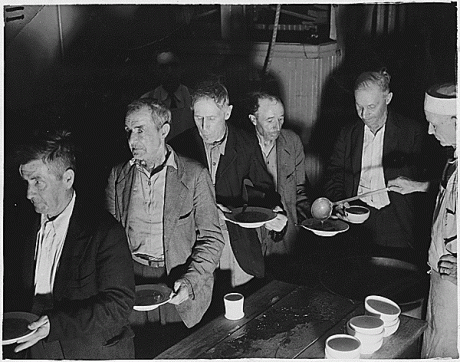Open Letter to our LGBT community professing to be followers of Jesus Christ.
I am writing in response to the recent Supreme Court decision in OBERGEFELL ET AL. v. HODGES, DIRECTOR, OHIO DEPARTMENT OF HEALTH, ET AL. requiring all (50) States to recognize same sex marriages. What surprised me most following this decision was not the reaction from among the Gay community, but the reaction from among those within the church throughout the United States.
I know this is a sensitive issue for many, especially for those within the Lesbian, Gay, Bisexual and Transgendered (“LGBT”) community who attend our churches. I want to say up front, I don’t believe its ever acceptable or Christ like to be unkind, I don’t believe its ever acceptable to be mean spirited, or condemning, or rude to people for any reason. I don’t believe its acceptable to belittle or ridicule or to stigmatized another for having different views on a particular subject.
As a follower of Jesus, I am to warn those who are irresponsible, comfort the discouraged, help the weak, be patient with everyone. I am to see to it that no one repays evil for evil to anyone, but always pursue what is good for one another and for all.[ref] 1 Thess. 5:14 (HSBC)[/ref]
Moreover, I do not agree with those that refuse services to others based on their sexual orientation alone. I own and operate a business and have served many within the LGBT community and do so in a same manner and fashion I serve everyone. If one reads the gospels, one will find Jesus mingling, sitting and eating with those outside the traditional religious community, serving in various capacities in a way that is loving, kind, compassionate and caring. In my view, it would be disingenuous to treat the LGBT community with anything but love, respect, and dignity.
With that being said, the group I would like to address are those that name Jesus as their Lord and Savior, claim to hold a high view of Scriptures, and also feel in appropriate to participate in a LGBT lifestyle.
In my view, the issue is whether one can be sexually active in the LGBT community and be in favor with God? Or is this LGBT lifestyle a deviation from God’s design for sexual intimacy within a God ordained relationship, and therefore practicing sexual immorality? As a side note, I think its worth mentioning there is a great distinction between one’s orientation and the act itself — just like there is a great difference between ones orientation to pride and the act of boasting.[ref]http://www.desiringgod.org/articles/so-called-same-sex-marriage[/ref]
“Truth by definition is exclusive. Everything cannot be true. If everything is true, then nothing is false. And if nothing is false then it would also be true to say everything is false. We cannot have it both ways. One should not be surprised at the claims of exclusivity. The reality is even those who deny truth’s exclusivity, in effect, exclude those who do not deny it. The truth quickly emerges. The law of non-contradiction does apply to reality: Two contradictory statements cannot both be true in the same sense. Thus, to deny the law of non-contradiction is to affirm it at the same time. You may as well talk about a one-ended stick as talk about truth being all-inclusive.” [ref]http://rzim.org/a-slice-of-infinity/point-of-exclusion[/ref]
What does the Bible say about this divine institution of marriage and how does that relate to ones sexuality? In the book of Hosea, God says He spoke through His prophets using similitudes, or idioms, or analogies. I believe the institution of marriage is one such similitude.[ref] Hosea 12:10 I have also spoken by the prophets, and I have multiplied visions, and used similitudes, by the ministry of the prophets.[/ref] The institution of matrimony is first mentioned in Genesis 2:18, 24 “This is why a man leaves his father and mother and bonds with his wife, and they become one flesh,” and then later by reference as being a relationship where this newly formed couple finds there God-appointed meaning, whether in personal-physical unification, symbolic representation, sensual jubilation, or fruitful procreation. [ref] http://www.desiringgod.org/articles/so-called-same-sex-marriage [/ref] [ref](Mark 10:6-9; Eph. 5:3)[/ref]
We later see the idiom of marriage used by Jesus Christ as He presents Himself as being the Bridegroom and the Church as His bride (Eph. 5:25-27, 31; 2 Cor. 11:2). The Biblical imagery here presents a sacred relationship exclusively between the Bridegroom (man gender) and his Bride (woman gender) where the two become one flesh. The Divine institution being a monogamous relationship until “death due us part.” This likeness is consistent with the idiom of Jesus Christ being the Bridegroom and His Church the virgin Bride.Conversely, its interesting to note that in every instance throughout the Scriptures a deviation from this prescription is characterized as “sexually immoral,” including but not limited to the practice of homosexuality. Any sexual relations outside the boundaries of a Biblical marriage is considered “works of the flesh” or “sin”. See references,[ref] 1 Tim. 1:10 “…for the sexually immoral and homosexuals, for kidnappers, liars, perjurers, and for whatever else is contrary to the sound teaching;” or 1 Corinthian 6:9 “Don’t you know that the unrighteous will not inherit God’s kingdom? Do not be deceived: No sexually immoral people, idolaters, adulterers, or anyone practicing homosexuality,”Heb 13:4 Marriage must be respected by all, and the marriage bed kept undefiled, because God will judge immoral people and adulterers.[/ref]
In reference to those among the LGBT community attending church, I would like to turn your attention to 1 Corinthians 5 by way of illustration.
In this passage, the Apostle Paul addresses an issue I believe is relevant to this discussion. The issue here is an individual, who professed the name of Jesus Christ, and who was participating in “sexual immorality; in fact, this individual was engaging in sexual relations with his Father’s wife. In essence, they were having consensual sex outside the boundaries of a Biblical marriage relationship, and the Apostle Paul chastised the church for not addressing the issue or not dealing with this matter appropriately. He makes an important distinction here, writing not even to associate with sexually immoral people. He then clarifies himself further by saying, “I did not mean the immoral people of this world or the greedy and swindlers or idolaters; otherwise you would have to leave the world. But now I am writing you not to associate with anyone who claims to be a believer who is sexually immoral or greedy, an idolater or verbally abusive, a drunkard or a swindler. Do not even eat with such a person. For what business is it of mine to judge outsiders? Don’t you judge those who are inside? But God judges outsiders. Put away the evil person from among yourselves.”[ref]1 Cor. 5:9-13(HSBC)[/ref] In other words, church members are to discriminate or judge or treat differently those within the church than those that are “outsiders.” Even to the point of not associating with anyone who claims to be a “believer” and who is sexually immoral…this means you as a church member do not have coffee with them at the local Starbucks, or have pizza with them at the local pizzeria. He uses very strong language at the end of this passage by saying, “Put away the evil person from among yourselves.”It is my belief, anyone who practices sexual relations outside the boundaries of a Biblical marriage relationship falls within the category of sexual immoral acts; which ought to invoke church discipline from within the church for the purpose of restoration. In the same manner as one who is greedy, an idolater, or verbally abusive, a drunkard or a swindler. In Paul’s letter to the church at Galatia, he writes, “Brothers, if someone is caught in any wrongdoing, you who are spiritual should restore such a person with a gentle spirit, watching out for yourselves so you also won’t be tempted.”[ref] Galations 6:1 (HSBC)[/ref]
There are many purposes of the church, one of which is church discipline, which has as its primary objective of restoration of the transgressor back into fellowship with God and the church. In 2 Corinthians 2:4-10 we read of the restoration, the forgiveness and comfort extended to him as a result of his repentance. Ultimately, this is the goal of the church, to restore such a one. The question that begs to be asked is, what if in this case, the church failed to appropriate remedial pastoral care towards this person, but instead continued to condone and accommodate it?
What happens, if believers, fail to confront and address the issue of publicly known sin within the church? If we, as brothers and sisters condone and accommodate known sinful lifestyles, what impact will this have on the restoration process? What happens if in the future, God Holy Spirit grabs ahold of them, convicts them of their “wrong doing” or “works of the flesh”, while at the same time the church is condoning and accommodating it? Doesn’t this create a conflict of immense proportions and magnitude? Who is right? God Holy Spirit or the Church? This blogger doesn’t believe that right and wrong are ever left to ones own initiative; our beliefs must be measured and challenged by the Scriptures and ministered by those who are more spiritual.


